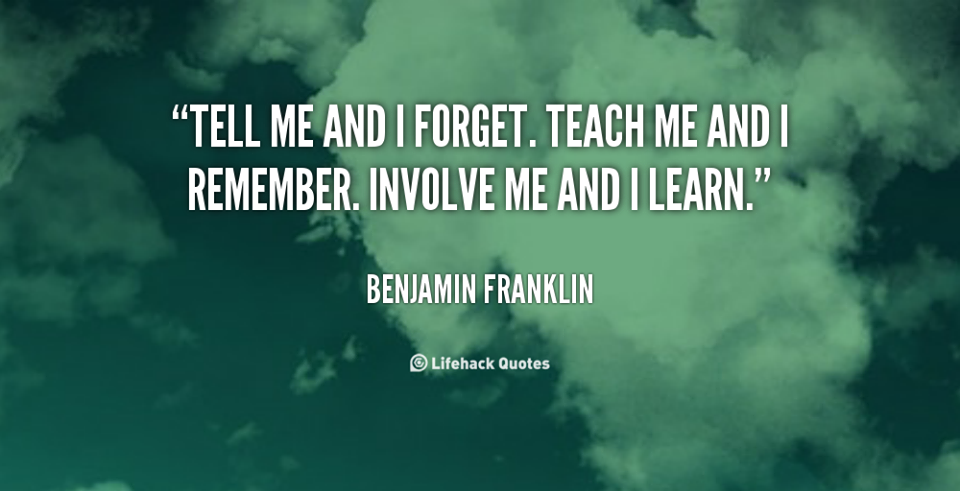Making education relevant will transform public education and our nation in a way that benefits all stake holders.
70% of our students are poor. They need to learn how to help their families now. If schools helped students make money now many of the students who left the District would want to come back.
We can make education more effective, relevant to the lives of our students and profitable for all stakeholders.
“I hear and I forget. I see and I remember. I do and I understand.” Confucius
Teaching the math, and reading components of a future job without hands on experience or a real world relevance is like teaching people how to cook a great meal but never letting the students ever make a meal or taste the food. And instead telling them that someday after they graduate college they will be able to get a job cooking and eating food.
Education should be hands-on as much as possible. Math describes the world and should be presented in a way that describes or is used in some way related to the world. For example “extreme couponing” is a process that combines consumer shopping skills with couponing to save hundreds or thousands of dollars a year. Many of our students depend on the free meals they get at school. But here is a way they can see how their education pays off right away saving their families money and improving the nutrition of their whole family.
By the way, Warren Buffet bought his first stock when he was in elementary school. He is now one of the richest people in the world. Applying math to money, investment and business makes the math more relevant and useful. It can develop critical thinking and motivation to develop their math skills.
We should be asking what our students can do rather than what our students know.
Teaching standards that are not used or developed during the years is like having a check list of all the standards we told the students about. It doesn’t mean they learned anything. People can only remember 10% of a lecture. And it is even less than that as the days and years go on without any reinforcement of the knowledge. It is like the saying the goes “use it or lose it.”
Invention curriculum

I believe the following will improve test scores, increase graduation rates, teach 21st century skills and fully fund public education.
The idea is an invention curriculum for k-12 that emphasizes 21st century life and job skills. I believe it will help increase test scores and reduce drop out rates because it will be fun, hands-on and relevant to their lives. Then the final projects will be evaluated for marketing purposes. The revenue from successfully marketed products will be split between the school site and the inventor. I believe this will help to fully fund public education and provide funding for the students to go to college. This will tap into the intelligence and creativity of millions of students who will invent and create solutions and boost local economies.
There are students in elementary school, middle school and high school who have made millions of dollars from things they invented. Recently one 16 year-old boy sold an app to Yahoo for $30 million. With the support of a directed program some of our students could even be like 37 year old Jan Koum who recently sold his WhatsApp App to Facebook for $19 billion.
Here are some more links. Come back for more links about transforming education.